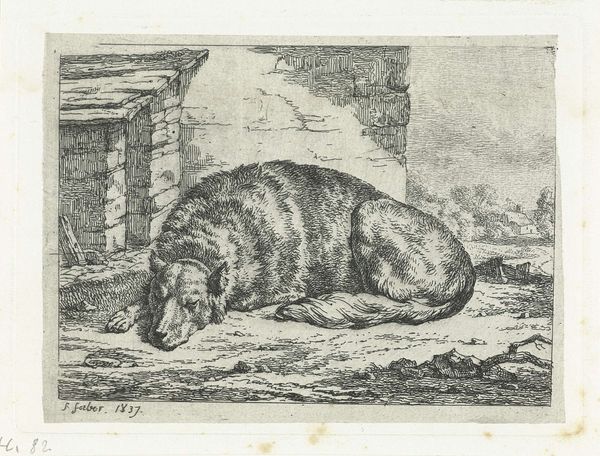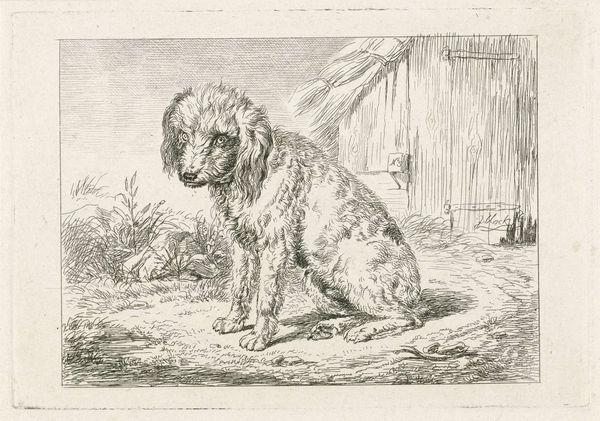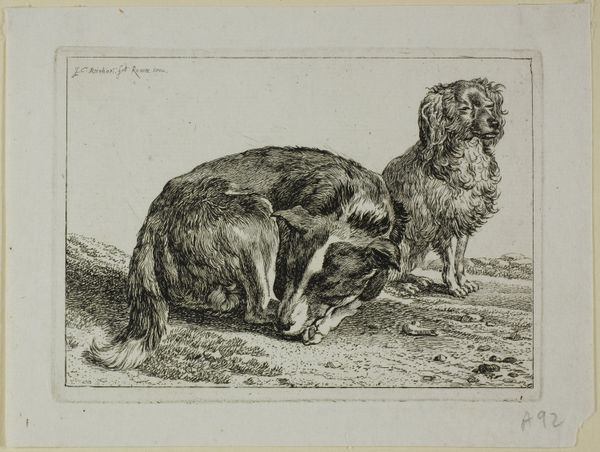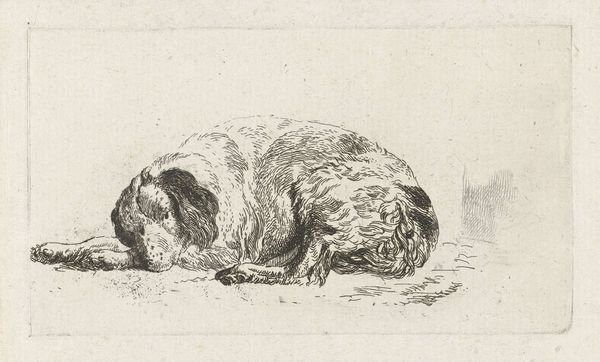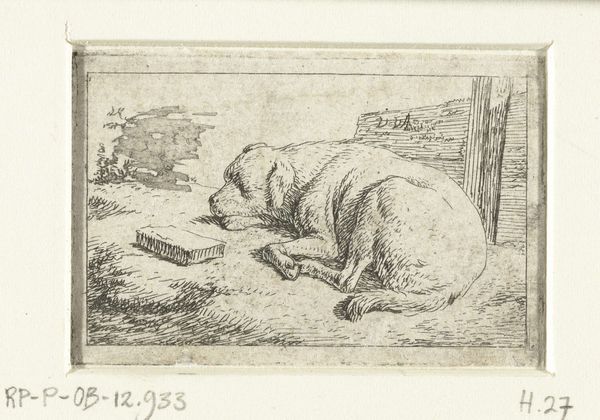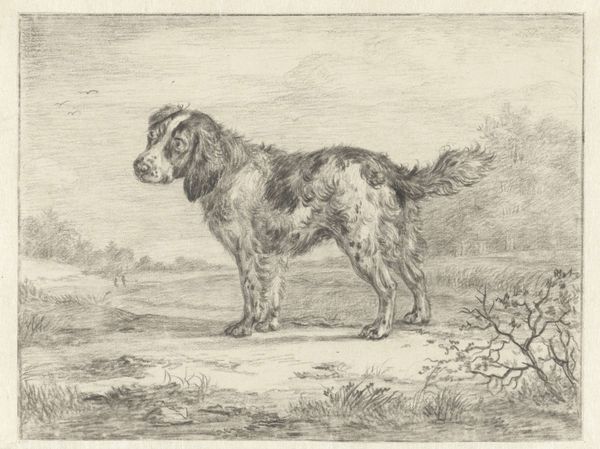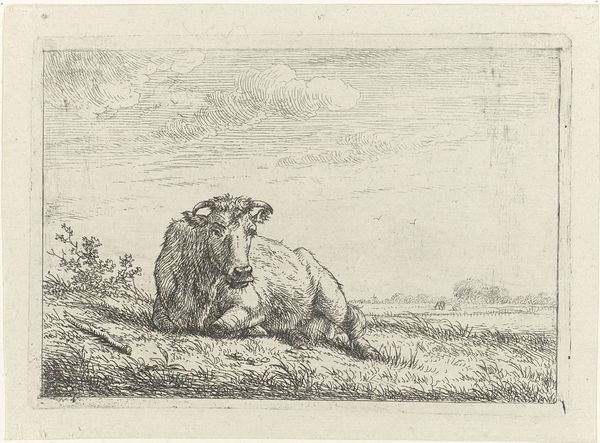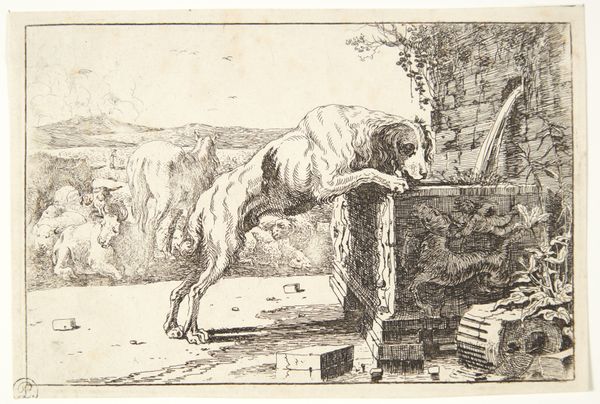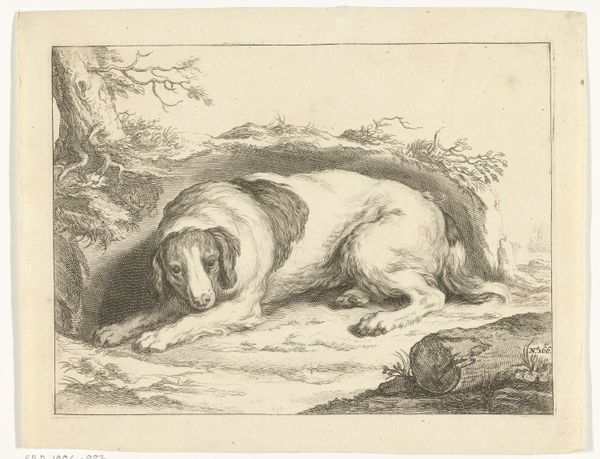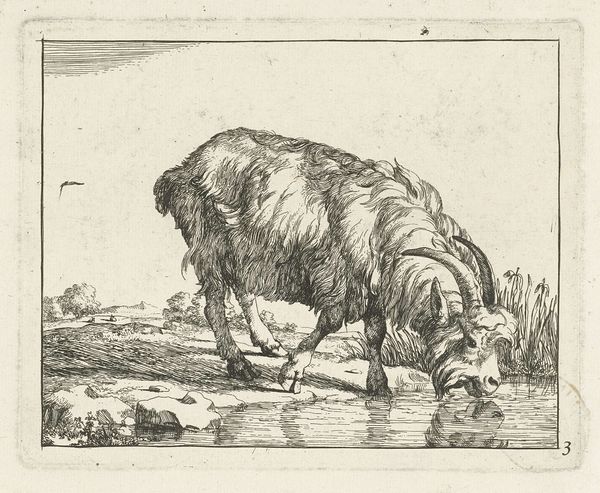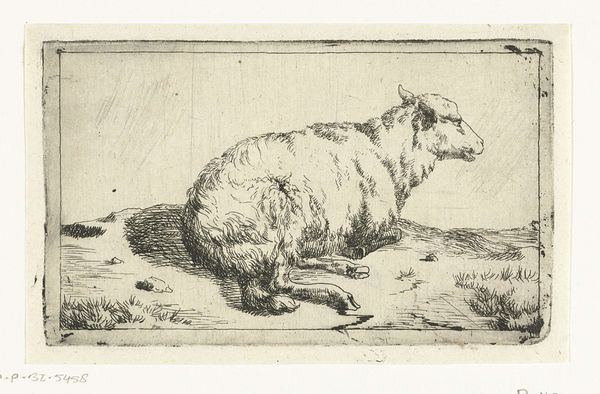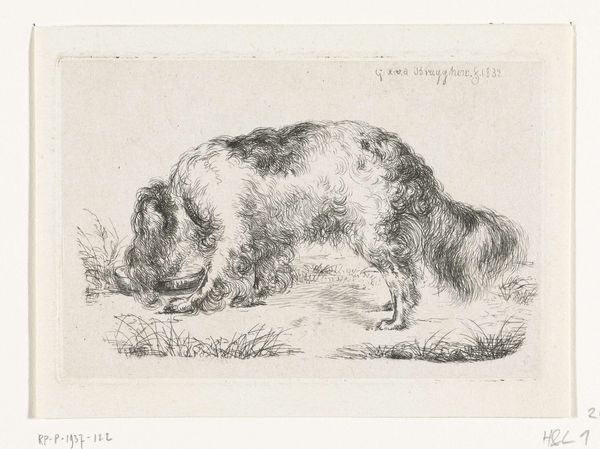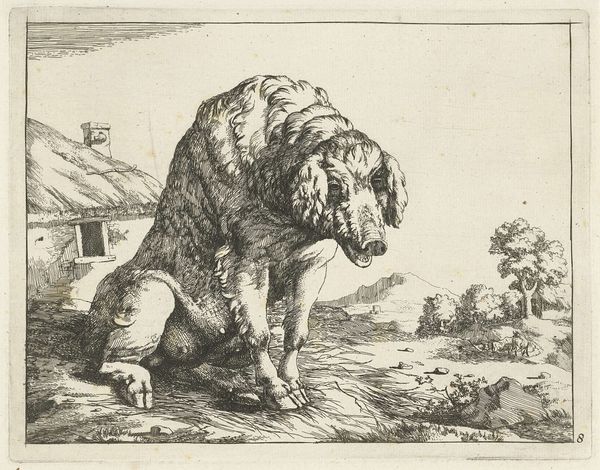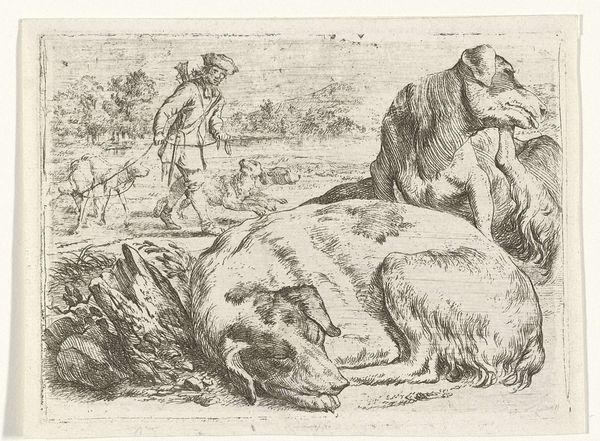
drawing, print, etching
#
drawing
#
light pencil work
#
quirky sketch
#
animal
#
dutch-golden-age
# print
#
pen sketch
#
etching
#
pencil sketch
#
landscape
#
personal sketchbook
#
sketchwork
#
pen-ink sketch
#
line
#
sketchbook drawing
#
genre-painting
#
sketchbook art
#
fantasy sketch
#
realism
Dimensions: height 136 mm, width 156 mm
Copyright: Rijks Museum: Open Domain
Editor: So, here we have Simon de Vlieger's "Waakhond," created sometime between 1610 and 1653. It's a drawing, etching, or print of a very relaxed-looking guard dog. I find it striking how detailed the rendering is, given it's "just" a sketch. What catches your eye about it? Curator: For me, it's the stark contrast between the relatively quick execution of the lines and the weighty subject matter of labor. Think about the material realities represented: the dog, literally chained to its post; the humble wooden structure it guards. Editor: The labor is embedded in both the subject and artistic representation, yes? How does this challenge traditional views of art versus craft? Curator: Precisely! In Vlieger's time, these drawings were not prized commodities. They served more as a raw material in his artistic production—studies for larger, more 'valuable' works, or as tradeable commodities themselves. Editor: Like preliminary studies, raw material of an economic trade, perhaps? Is that how it challenges the boundaries? Curator: Exactly. It prompts us to consider the role of the "lesser" drawing, and how our modern perception of its status contrasts the artistic creation in that context. Even the act of creating this sketch – the cost of materials, the artist’s labor - carries significant material implications. We tend to focus on the artistic genius, and gloss over the means of making. Editor: That's so interesting. I guess I never thought of sketches as existing in a similar context to labor initially! Curator: The sketch contains material and social history that asks, how was art treated as product at the time? Now that you’ve contemplated the relationship of dog as labor to art as labor, what did you find most striking about this piece? Editor: The economic tension is amazing! Seeing both art and labor depicted shifts the value so the scene depicts more than meets the eye. Thank you!
Comments
Join the conversation
Join millions of artists and users on Artera today and experience the ultimate creative platform.
